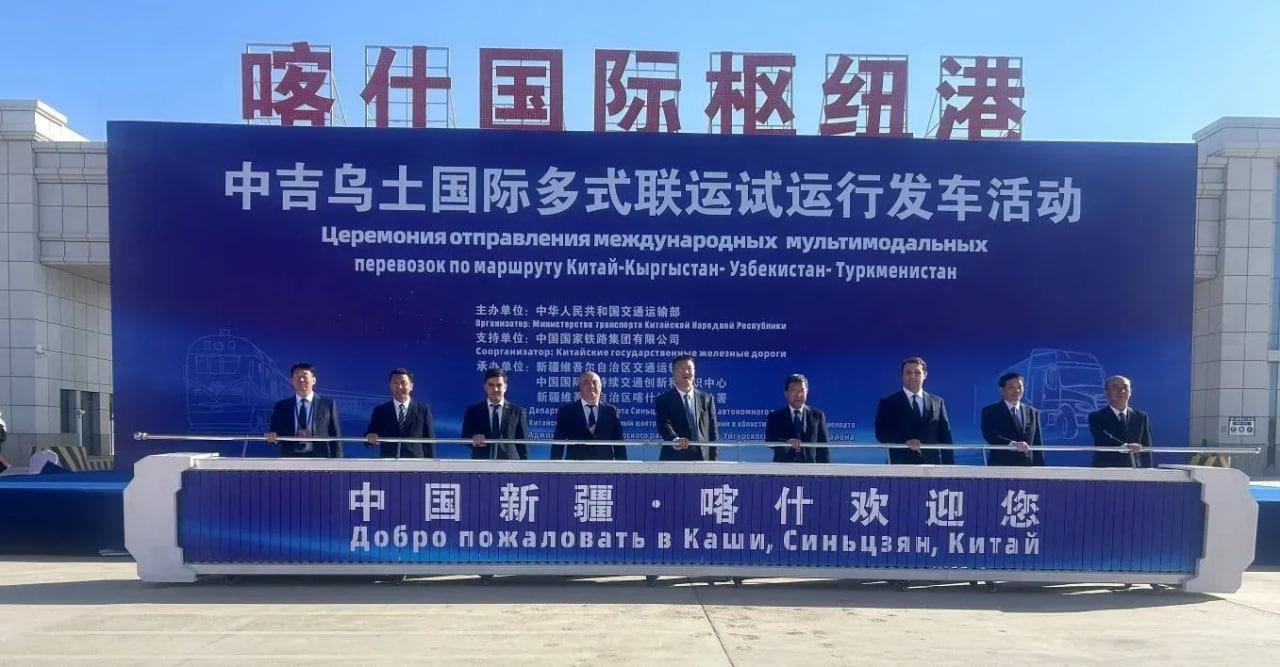ABIZAID PROMISES NO REPEAT OF GREAT GAME IN CENTRAL ASIA
ABIZAID PROMISES NO REPEAT OF GREAT GAME IN CENTRAL ASIA
Visiting Kazakhstan on November 3, General John Abizaid, Chief of U.S. Central Command (CENTCOM), reassured his hosts that Washington has no plans to repeat the mistakes of the 19th century Great Game in the region. His comments were also intended to allay fears in many regional capitals and beyond concerning U.S. intentions and ongoing military deployment in the region. While these remarks follow a familiar pattern from American officials visiting the region, they come at a critical time for the regime of President Nursultan Nazarbayev, which now faces presidential elections on December 4 and greater involvement in the Shanghai Cooperation Organization (SCO), which has called for discussion of a timetable for the U.S. presence in the region.
Abizaid was in some ways unclear about whether the Pentagon is considering Kazakhstan as a future host to U.S. military personnel. “We do not expect to open a military base in Kazakhstan unless a tense situation emerges in the region, under which the Kazakh government requests the U.S. armed forces to do so,” Gen. Abizaid explained after a meeting with Army General Mukhtar Altynbayev, Kazakhstan’s defense minister. Although he did not entirely rule out such future basing arrangements, he appeared to signal that no such plans currently exist. “The presence of the U.S. armed forces in this region is in no way a demonstration of our dominance, and this is in no way a repeat of great games of the 18th and 19th centuries,” he asserted. Such statements, calculated to address the reservations held by America’s critics, will be analyzed carefully within Kazakhstan and in China and Russia. Beijing and Moscow will be interested to note Abizaid’s justification for the military presence: “only to help the countries of the region to fight terrorism, drug trafficking, and corruption.” It bore remarkable similarity to the security policy of the SCO in its numerous official statements (Kazakhstan-Interfax News Agency, November 3).
Abizaid also had praise for the current course of Kazakhstan’s military reform, though he restricted himself to commenting on the capabilities of the peacekeeping battalion (KAZBAT) deployed in Iraq. He believes that KAZBAT is making a significant contribution, yet its political symbolism as the only Central Asian country to deploy military forces beyond the region and participate actively in Iraq generates constructive publicity and benefits the Nazarbayev regime, overstating its true military role. On November 2 Abizaid visited the headquarters of the air-mobile troops at Kapchagai, which also hosts the headquarters of KAZBAT. Kazakh television reported Abizaid as saying the battalion meets NATO standards, undoubtedly referring to the elements serving in Iraq through the close support and assistance of U.S. and other NATO forces in the theater of operations, not the entire battalion (Channel 31 TV, November 2).
President Nazarbayev has repeatedly highlighted distinct priorities for military reform, changes that will require foreign support to implement. These are to professionalize the army, modernize equipment and weapon systems, and strengthen peacekeeping capabilities; all of these are of interest to the United States and NATO, as they make Kazakhstan potentially very useful as a Western security partner in the region. Nazarbayev may also calculate that more American money may be committed to supporting the plight of Kazakhstan’s military reform program as a result of the downward slide in Uzbekistan’s relations with the West.
Abizaid’s comments during his visit to Kazakhstan will do little to quiet the minds of America’s critics, many of whom are hostile to the U.S. military presence in the region. But they do underscore Washington’s currently high appraisal of Kazakhstan as a long-term, stable security partner in Central Asia. China and Russia continue to exert pressure on the Central Asian states to treat sensitively the issue of American bases in the region, and this pressure has grown through the multilateral forum of the SCO. Nazarbayev saw first hand the conditions and facilities at an airbase near Shymkent in southern Kazakhstan on November 2. Much was made of whether Altynbayev could fit into the cockpit of an SU-25 fighter aircraft; but despite the jovial mood Nazarbayev is painfully aware of the dependency upon Russian-built military assets and through this the dangers of pushing too far his relationship with the West (Kazakhstan-Interfax News Agency, November 2).
Abizaid himself has gained a more rounded understanding of the current perception of the U.S. military deployment in Central Asia, while making further inroads with the hierarchy of the Kazakh Ministry of Defense. Avoiding any appearance of pursuing exclusively American security interests in the context of his remarks about the Great Game will placate only those already disposed towards closer transatlantic integration. Skeptics will note the refusal to rule out the future emergence of an American military presence in Kazakhstan. However, Abizaid now directly knows the problems that arise from the geopolitical reality of dealing with a state sandwiched between Russia and China.


